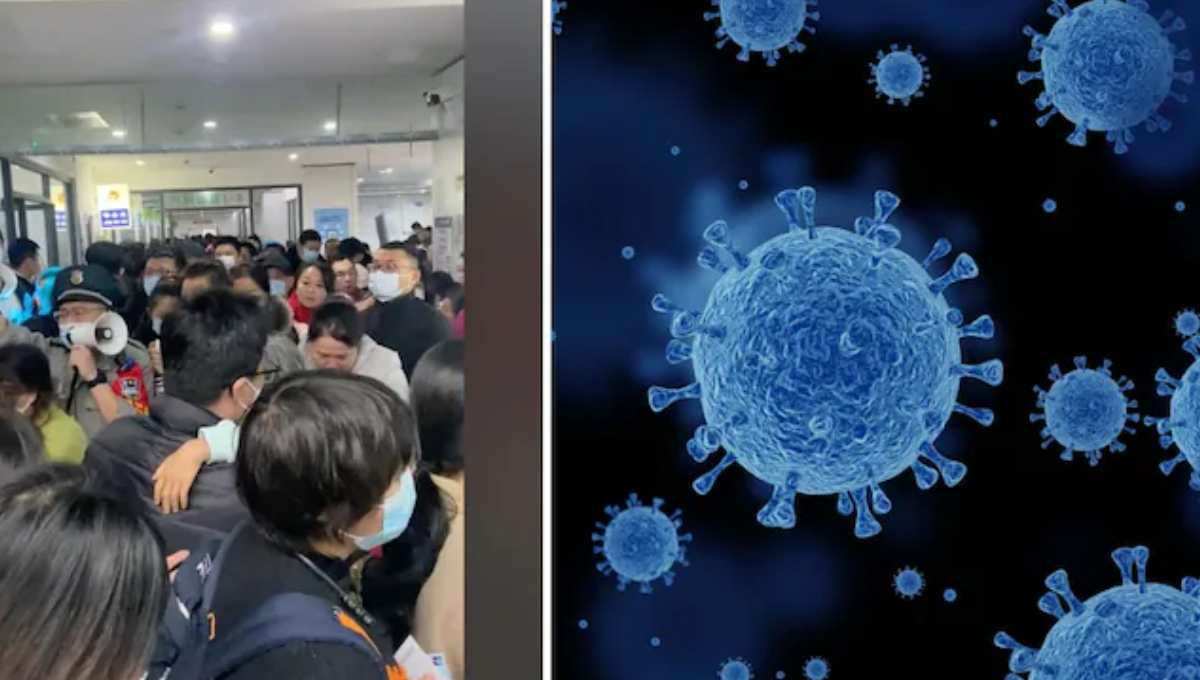Experts Urge Caution as HMPV Cases Rise in China This Winter
China’s disease control authorities recently announced the launch of a pilot monitoring system focused on tracking pneumonia cases of unknown origin, signaling a proactive approach to combating respiratory diseases . This new initiative is designed to enhance the country’s preparedness for emerging pathogens, particularly with respiratory infections expected to rise during the winter and spring seasons. The monitoring system aims to provide a dedicated framework for detecting and responding to unknown viruses “HMPV“, marking a notable shift in China’s approach compared to its response five years ago when the novel coronavirus (COVID-19) first emerged. At that time, China faced significant challenges due to a lack of specific protocols for managing new and unforeseen pathogens.
Kan Biao, a senior official from China’s health authorities, emphasized the likely increase in various respiratory infectious diseases during the colder months. He explained that respiratory illnesses, such as pneumonia, are expected to surge in winter and spring, a trend seen globally due to the colder weather, which can exacerbate the spread of viruses. However, Kan also indicated that the overall number of cases in 2025 is expected to be smaller than last year, without going into further detail. While this is a hopeful forecast, health experts remain cautious, knowing that respiratory diseases can spread quickly under certain conditions.
Recent data indicates that pathogens like rhinovirus and human metapneumovirus have been detected in a growing number of cases. Among these, human metapneumovirus is particularly notable, as its incidence has been rising, especially among children under the age of 14. Northern provinces in China are witnessing an upward trend in infections linked to this virus. Like many respiratory viruses, human metapneumovirus can present with symptoms ranging from mild cold symptoms to more severe pneumonia. Given the rise in these cases, authorities are closely monitoring the situation to prevent a wider outbreak.
To further boost readiness, the pilot monitoring system will allow local authorities to implement specific protocols tailored to managing unusual pathogens swiftly. This system is seen as a direct response to the lessons learned from the COVID-19 pandemic, where initial delays in detection and response led to a rapid and global spread of the virus. The new monitoring program is intended to improve real-time data collection, enhance diagnostic accuracy, and ensure better coordination in dealing with potential respiratory disease outbreaks.
Rising Cases of HMPV in China Amid Winter Surge
The increase in human metapneumovirus (HMPV) cases in China comes as colder weather and heightened indoor activity fuel the spread of respiratory viruses. This seasonal increase in infections, including HMPV, follows the usual winter trends.
The National Disease Control and Prevention Administration (CDC) of China has reported a notable rise in respiratory illnesses during this period. While the World Health Organization (WHO) has not classified the situation as a global health emergency, the uptick in cases has prompted Chinese authorities to ramp up monitoring efforts.
To enhance detection and response, a new pilot program has been launched to track pneumonia cases of unknown origin. This initiative ensures that health labs and agencies can report and manage these cases more effectively, improving the country’s preparedness for unexpected respiratory threats. The pilot program aims to strengthen China’s overall surveillance capabilities during this critical season.
Can HMPV Spread to Other Countries?
Yes, the human metapneumovirus (HMPV) can spread to other countries, as evidenced by cases already reported in Hong Kong. Neighboring countries such as Cambodia and Taiwan are closely monitoring the situation, taking precautionary measures due to the virus’s similarity to COVID-19 and influenza. Cambodia’s Communicable Disease Control Department has issued warnings, highlighting the potential for HMPV to pose risks similar to other respiratory illnesses.
The Centers for Disease Control in Taiwan have warned that HMPV poses greater risks to vulnerable populations, such as children, the elderly, and immunocompromised individuals. These groups are more susceptible to severe symptoms, including pneumonia.
In neighboring India, however, health officials have sought to reassure the public, emphasizing that HMPV is “like any other respiratory virus” and urging calm, as there is currently no cause for widespread panic. Nevertheless, countries are keeping a watchful eye on the virus, implementing measures to detect and prevent its spread, especially as respiratory diseases tend to peak during colder months.
Precautions and Preventive Measures
Expert Warns Against Blind Use of Antiviral Drugs for Human Metapneumovirus Amid Winter Surge
In a recent interview with the state-backed National Business Daily, a respiratory expert from a Shanghai hospital issued a caution to the public regarding the use of antiviral drugs for treating human metapneumovirus (hMPV). The expert warned against using these medications indiscriminately, as there is no specific vaccine for the virus, and its symptoms often resemble those of a common cold.
Human metapneumovirus, like other respiratory viruses, can cause symptoms ranging from mild cold-like signs to more severe conditions like pneumonia, especially in vulnerable populations such as young children and the elderly. However, the expert stressed that antiviral drugs are not universally effective against this virus and should not be used without proper medical guidance. Misuse of such drugs can lead to unnecessary side effects or contribute to resistance, making it more difficult to treat other infections in the future.
With no vaccine currently available, the best defense against hMPV remains prevention, such as frequent handwashing, avoiding close contact with sick individuals, and seeking timely medical advice if symptoms develop. Authorities and healthcare providers continue to monitor the virus closely as cases are expected to rise in the winter months, particularly among children in northern regions.
This warning underscores the importance of using medications only as prescribed by healthcare professionals and highlights the ongoing need for effective preventive measures.




